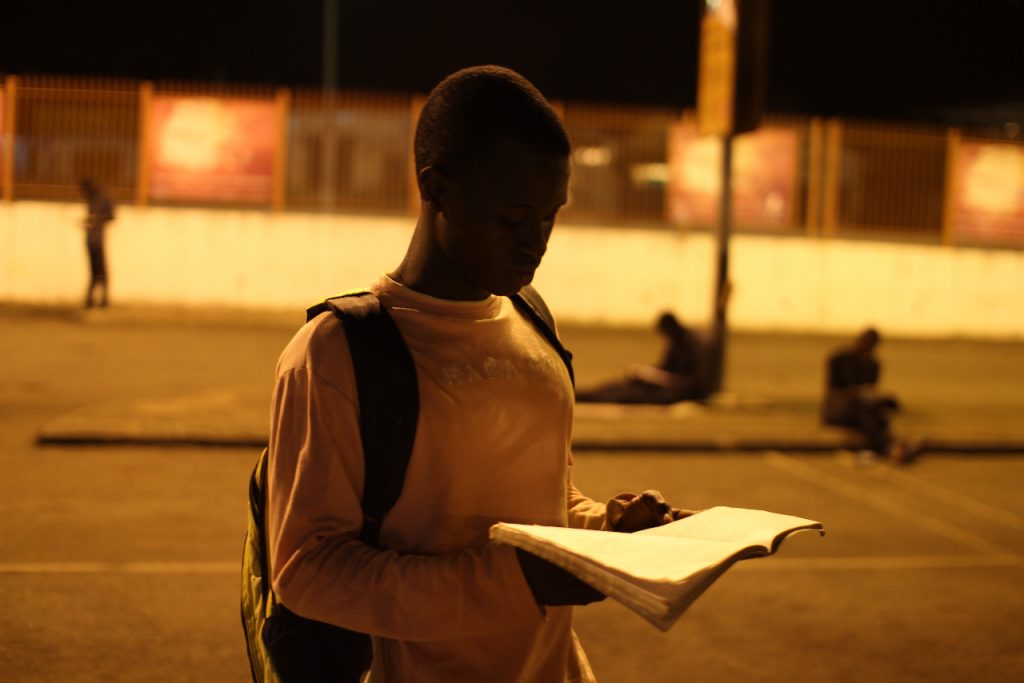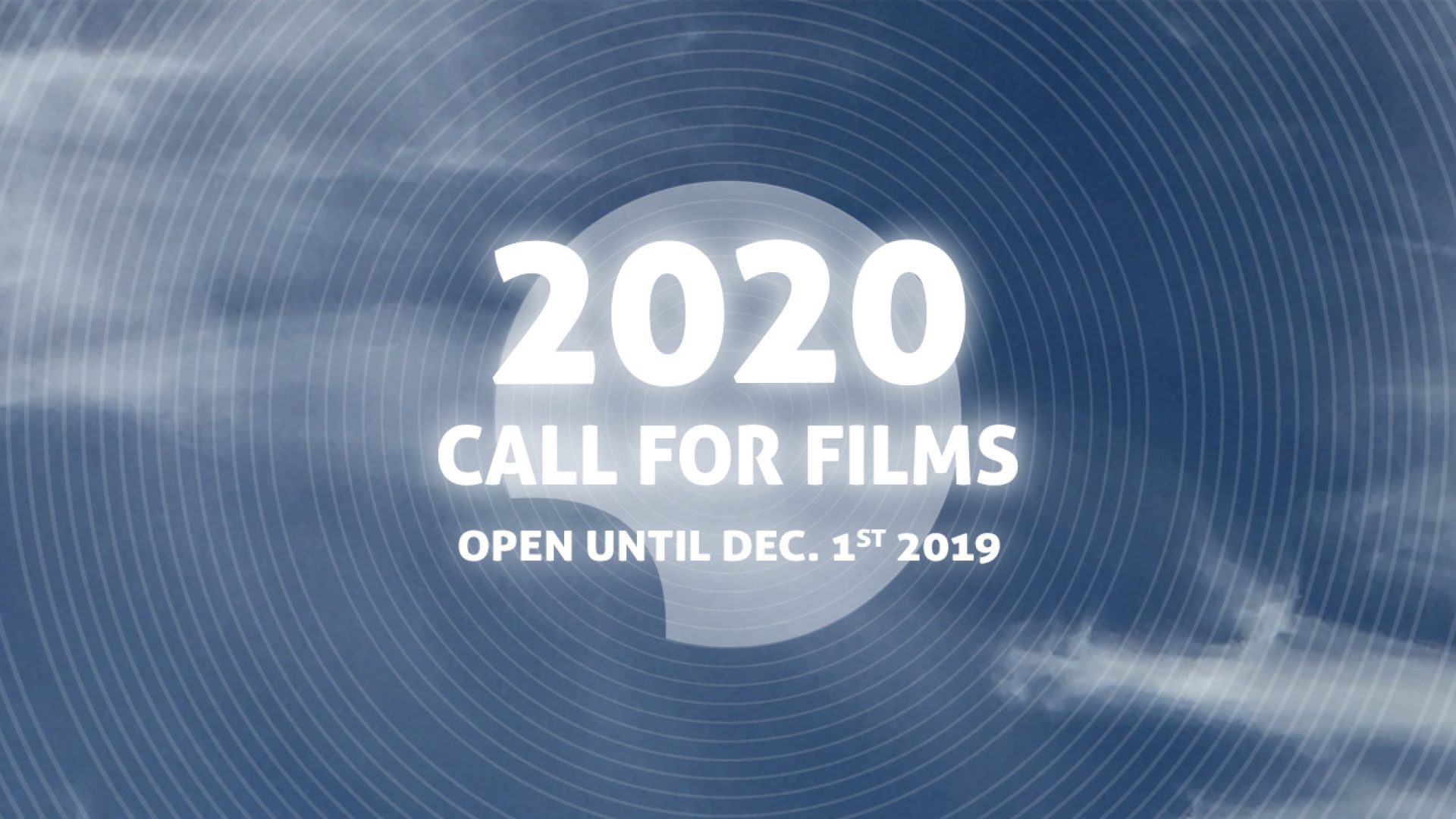BLACK OUT
Eva Weber | Guinea, Great Britain 2012 | 47 Min. | OmeU
After decades of military dictatorships, the country’s 10 million people are full of hope that the new government will at last improve their situation and that of their country. Besides several problems, the infrastructure is grumbling. Only about a fifth of its people have access to electricity and even those that do experience frequent power cuts. 80 percent of the population have no electricity at all.
With few families able to afford generators, children have discovered G’bessia International Airport, petrol stations and parks in wealthier areas of the city as unlikely places to study at night. They are among the only places in the capital where they will always find light, giving the long stretch of pavements outside the terminals and the aisles at petrol stations the feel of hushed libraries, each student sitting quietly as they study their papers. Some live close by, others have to walk for over an hour, to get one of the few places illuminated enough to read their books.
After decades of turmoil and mismanagement, Alpha Conde became Guinea’s first democratically elected president on November 16th 2010. He has pledged to make raising the living standards for the average Guinean, and in particular improving the energy network, a top priority. A literal and metaphorical journey towards enlightment, BLACK OUTshows the children’s resourcefulness and determination as a metaphor for the country’s own struggle for change and explores whether Guinea can at last fulfill its potential and secure a better future for its people.


